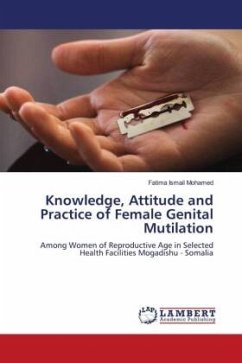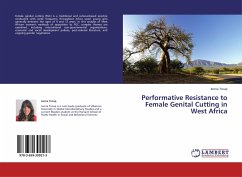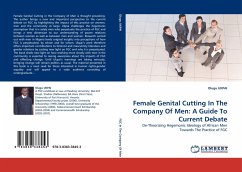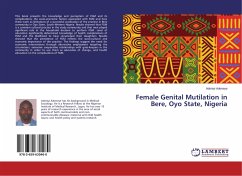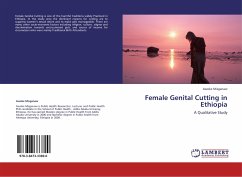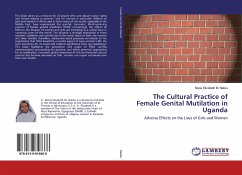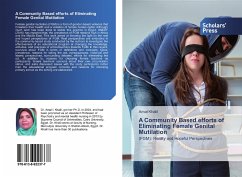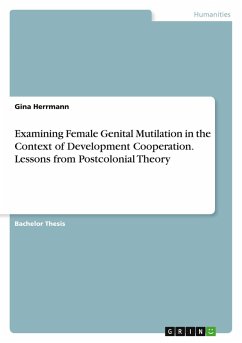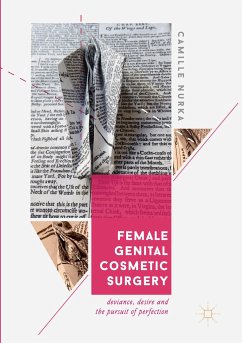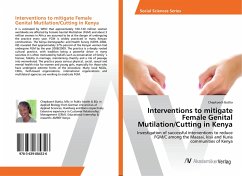
Interventions to mitigate Female Genital Mutilation/Cutting in Kenya
Investigation of successful interventions to reduce FGM/C among the Maasai, kisii and Kuria communities of Kenya
Versandkostenfrei!
Versandfertig in 6-10 Tagen
27,99 €
inkl. MwSt.

PAYBACK Punkte
14 °P sammeln!
It is estimated by WHO that approximately 100-140 million women worldwide are affected by Female Genital Mutilation (FGM) and about 3 million women in Africa are assumed to be at the danger of undergoing the practice every year. FGM is widely practiced in many Kenyan communities. The Kenya Demographic and Health Survey (KDHS 2008-09) revealed that approximately 27% percent of the Kenyan women had undergone FGM by the year 2008/2009. The practice is a deeply rooted cultural practice, with tradition being a powerful driver in many societies.It is often motivated by beliefs such as preservation o...
It is estimated by WHO that approximately 100-140 million women worldwide are affected by Female Genital Mutilation (FGM) and about 3 million women in Africa are assumed to be at the danger of undergoing the practice every year. FGM is widely practiced in many Kenyan communities. The Kenya Demographic and Health Survey (KDHS 2008-09) revealed that approximately 27% percent of the Kenyan women had undergone FGM by the year 2008/2009. The practice is a deeply rooted cultural practice, with tradition being a powerful driver in many societies.It is often motivated by beliefs such as preservation of family s honour, fidelity in marriage, maintaining chastity and a rite of passage into womanhood. The practice poses serious physical, social, sexual and mental health risks for women and young girls, especially for those who have undergone extreme forms of the procedure. Many local NGOs, CBOs, faith-based organizations, international organizations and multilateral agencies are working to eradicate FGM.



